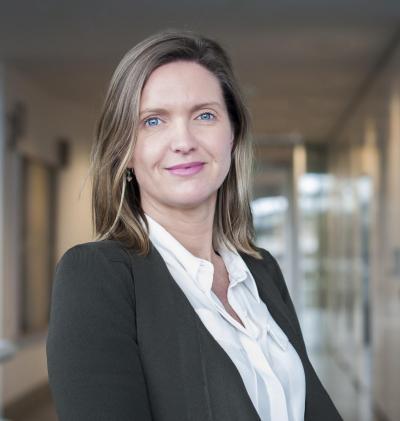
Dr Lucy Fox is a haematology fellow involved in Melbourne Genomics’ project to investigate the benefits of genomic sequencing for patients with bone marrow failure. This project is jointly led by Dr Piers Blombery at Peter MacCallum Cancer Centre and Professor David Ritchie at the Royal Melbourne Hospital. We asked Lucy a few questions about the project.
Firstly, can you tell us a bit about you?
I am a molecular haematology fellow at the Victorian Comprehensive Cancer Centre, where my focus is on the Bone Marrow Failure project. I also work at Epworth Healthcare as a clinical haematology fellow. I have recently completed joint training in both clinical and laboratory haematology. Prior to studying medicine, I studied commerce and science, with majors in accounting and biochemistry.
What is bone marrow failure?
Bone marrow failure occurs when the soft, spongy tissue inside our bones that is the ‘factory’ for all blood cells is unable to keep up with the body’s needs. The cells created in bone marrow include: red blood cells that carry oxygen around the body, white blood cells that fight infection, and platelets that stop bleeding.
There are a number of conditions that result in bone marrow failure, which can be either inherited or acquired.
Which patients are involved?
Our project involves adults and children with a range of bone marrow failure syndromes, including acquired aplastic anaemia, inherited bone marrow failure, and hypoplastic myelodysplastic syndrome. Patients from across Victoria are being recruited through the Royal Melbourne Hospital, the Peter MacCallum Cancer Centre, the Royal Children’s Hospital and Austin Health.
What is your role in the project?
My role involves identifying and recruiting patients, including those with suspected inherited conditions (such as Fanconi Anaemia) and patients with the acquired disease, aplastic anaemia.
Our team collects clinical information on each patient and interprets this alongside the genomic data, in the effort to improve diagnosis and clinical decision-making, and provide a clearer prognosis to the patient and their family. Our findings are discussed among clinicians, genetic counsellors and molecular haematology scientists at regular multidisciplinary meetings.
What do you hope to achieve?
Diagnosis can be difficult – it is estimated that up to 10% of inherited bone marrow failure is not properly diagnosed through standard testing. Additionally, aplastic anaemia is currently a diagnosis of exclusion. We want to see whether analysis of a patient’s genomic data alongside their clinical information can simplify and improve diagnosis. If a patient’s disease is found to be inherited, confirmation of this can enable relatives to be tested, if appropriate.
In terms of treatment, we know that while some bone marrow failure patients do well with usual treatments, others will progress to life-threatening diseases, such as acute myeloid leukaemia. Genomic sequencing may enable us to better ‘stratify’ patients into risk groups, and better direct treatment.
What excites you about this work?
Although many advances have been made in recent years in understanding the biological drivers of bone marrow failure, many patients still experience significantly reduced quality of life. They may be prone to serious infections, may experience significant toxicities from their treatment, or may spend long hours receiving platelet and red blood cell transfusions.
There are big gains to be made in all aspects of managing patients with bone marrow failure, and our hope is that genomics can contribute to improving care for those with these challenging diseases.
For more on the Flagship, read here.
